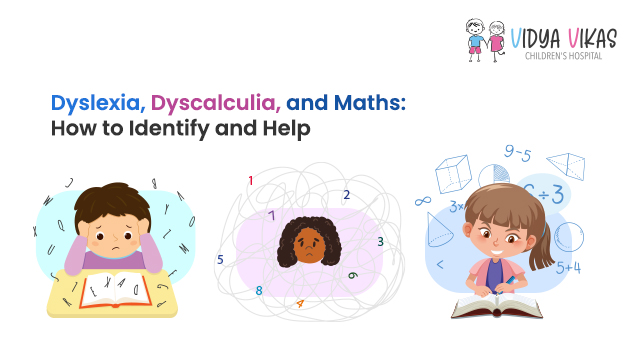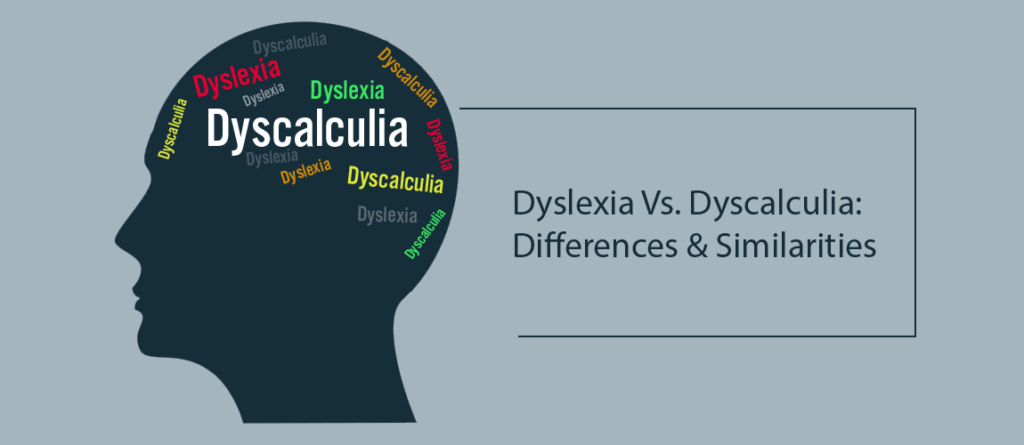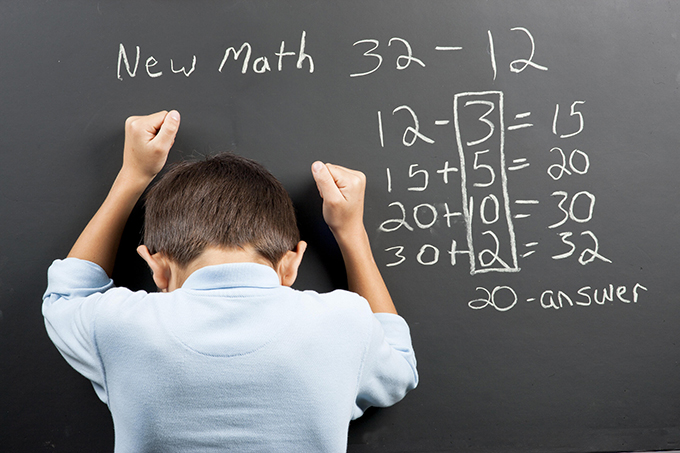


Discover the beauty of 1+1=2 and help your child grasp this concept. Explore the world of dyscalculia and empower your child’s learning journey.
Many kids need math help regardless of scoring good marks and learning other subjects. Parents often scold kids for not concentrating and usually think that mathematics is subjectively tougher than the other subjects. What if I say this may be a neurological issue, and you must consult a good neurologist to sort out this issue?
Yes, there is a condition called dyscalculia, a learning disorder seen in some people and associated with difficulty learning mathematics. If this issue can be diagnosed at a younger age, it is easy to treat with the help of a Pediatric doctor .
Is your child having difficulties with math? Dyscalculia, a learning disorder that affects a person’s ability to understand and work with numbers, may be the cause. The condition can make it challenging for children to learn basic math concepts, perform calculations, and understand mathematical symbols.
If you suspect that your child has dyscalculia or any other learning disorder, don’t hesitate to seek professional help from the best pediatrc doctor in Nashik. At Vidya Vikas Hospital in Nashik, we have a team of experienced pediatric specialists, including occupational therapists, psychologists, and speech-language pathologists, who can assess your child’s condition and develop a personalized treatment plan to help them overcome their learning challenges. Our experts use a variety of evidence-based techniques and therapies to help children with dyscalculia improve their math skills and boost their confidence.
Dyscalculia, a learning disorder that affects a person’s math ability, is best addressed with early detection and intervention. Like dyslexia, which disrupts areas of the brain related to reading, dyscalculia affects brain areas that handle math and number-related skills and understanding. By recognizing the symptoms of this condition, which usually appear in childhood, we can foster a compassionate and empathetic environment, providing the necessary support and understanding to individuals who may have dyscalculia, even if they are adults.
Dyscalculia is a specific learning disorder that makes learning or understanding math concepts difficult. It’s not a matter of intelligence; children with dyscalculia often have average or above-average intelligence in other areas. However, they may struggle with:

Dyslexia and dyscalculia are two different learning disorders that affect a child’s ability to learn. Dyslexia specifically impacts a child’s ability to read, while dyscalculia affects their math skills. However, it’s not uncommon for children to have both conditions. It is important to recognize these learning disorders early on so that children can receive the appropriate support and interventions to help them succeed academically.
The exact cause of dyscalculia is unknown, but it’s thought to be related to differences in brain development. Symptoms of dyscalculia typically appear in early childhood and may include:
If your child shows symptoms of dyscalculia, a pediatric doctor at Vidya Vikas Hospital will help your child to diagnose and recover from this condition. This may involve assessments of your child’s math skills, cognitive abilities, and underlying conditions. Early diagnosis and intervention are crucial for helping children with dyscalculia reach their full potential.
There’s no single test for dyscalculia. Diagnosis typically involves a multi-disciplinary approach, including:
Medical history: Review your child’s medical history to rule out any underlying conditions that could impact their learning.
Educational evaluation: An assessment by a qualified professional, such as a school psychologist or educational therapist, to evaluate your child’s math skills and identify areas of difficulty.
Psychological evaluation: A psychologist may assess your child’s cognitive abilities, such as working memory, processing speed, and visual-spatial skills.

1. Can dyscalculia be cured?
There’s no cure for dyscalculia, but with proper treatment and support, children can learn strategies to manage their difficulties and succeed in math.
2 How can I help my child with dyscalculia?
Here are some tips:
3. Schedule an appointment with a Pediatric Neurologist at Vidya Vikas Hospital
Suppose you have concerns about your child’s developmental progress. In that case, we encourage you to schedule an appointment with one of our dedicated pediatric neurologist at Vidya Vikas Hospital in Nashik. Our compassionate team is focused on providing comprehensive support to help children with learning disorders achieve their full potential.